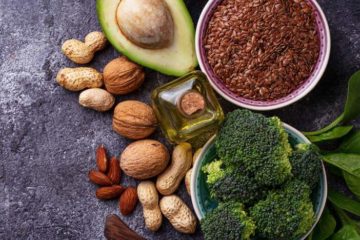Dental care: Which foods harm your teeth

Every child knows that sweets can cause tooth decay and that it is important to brush your teeth diligently. But did you know that many healthy foods can be just as harmful to our teeth as sweets? And contrary to what you may think, it is possible to brush your teeth too much. In fact brushing your teeth at the wrong time is actually counterproductive. Everything about dental care: In the following article you will learn how to really protect your teeth and what you should avoid at all costs.
What is dental enamel?
The right dental care: We are often told that we should take care of our enamel and be careful not to damage it. But what is enamel actually?
Every day your teeth are exposed to acidic foods, which make the teeth more sensitive to hot and cold food and drink and cause discolouration of the teeth. The enamel, which is the outermost layer of the teeth, helps you to protect yourself from these complaints as much as possible. The enamel is therefore the natural protective cover of your teeth – about 2.5 millimetres thick. It is made up of a mixture of calcium, phosphorus, sodium and magnesium and is the hardest substance in your entire body. Dental enamel is harder than bone – but is also particularly sensitive because it is made up of dead cells from your body and therefore contains no nerve tissue.
The problem with dental enamel
Tooth enamel is acid soluble. However, so that the enamel does not suffer too much after eating acidic foods, your saliva (and the enzymes in it) neutralizes the PH level in your mouth, which protects the tooth enamel from eroding. The problem is that saliva takes about 30 minutes to neutralise the mouth after the consumption of acidic foods. If insufficient time is afforded to this process, the tooth enamel is reduced due to shifts in the PH value of the mouth, as important minerals are extracted from it. Acidic foods therefore damage the teeth directly, even without bacteria being involved. This process is referred to by dentists as erosion. Since tooth enamel is not permeated by nerves, it cannot be repaired naturally by the body.
Acid harms the teeth just as much as sweets: The top enamel eroders:

Sweet, sugary foods harm teeth when food residue sticks to grooves on the surfaces of, and the spaces in between the teeth. Bacteria feel particularly comfortable there and can easily multiply. The bacteria then form dangerous acids that attack the enamel. Amongst the most harmful foods are:
- Sweets (especially sugary sweets, which you keep in your mouth for a particularly long time)
- Sweet bakery products
- Sugary drinks (coca cola, soft drinks, smoothies, juices)
- Honey
Sugary foods react with the bacteria in our mouths to produce acid, while acidic foods directly attack the tooth enamel. Special caution is required with the following foods:
- Citrus fruits
Citrus fruits are known to taste sour and they have a very high fruit acid content – it is therefore not surprising that they are poison for the teeth - Kiwi
Kiwis actually taste rather sweet, so their very high fruit acid content may come as a surprise here - Fruit juices
Fruit juices not only have a high fruit acid content, but also often contain added sugar – a killer combination for your tooth enamel - Salad dressings containing vinegar
Vinegar consists of 95% water and 5% acetic acid. Acetic acid is used, in higher concentrations, as a cleaning and disinfecting agent, which should make its heavily corrosive effect on the teeth clear - Soft drinks
Soft drinks are usually a combination of enormous amounts of sugar with citric or phosphoric acid — a particularly bad combination for your tooth enamel - Wine
Wine is a very acidic drink. While red wine can cause additional discolouration to your teeth, white wine dissolves a particularly high amount of calcium from the tooth enamel
Teeth feel dull?
Foods such as spinach, chard or rhubarb contain a lot of oxalic acid. Oxalic acid combines with the mineral calcium and thus removes it from the tooth enamel. Calcium is the mineral responsible for the strength of your teeth. Consequently, your teeth often feel “dull” after eating these foods containing oxalic acid. To avoid this effect, you can eat oxalic acid-containing foods combined with calcium-containing foods (e.g. cream, sour cream, quark, yoghurt). The calcium contained in dairy products neutralises the acid.
But aren't fruits and vegetables healthy?

Yes, fruit and vegetables are healthy and provide your body with essential vitamins and minerals (our BMI calculator will help you calculate your optimal nutrient distribution). Fruit and vegetables are an essential part of any nutritional plan. You should therefore not give them up, but rather pay attention to a few things in order not to put strain on your tooth enamel unnecessarily. After an “acidic meal” it takes about half an hour for the acid to be broken down. The saliva automatically neutralises the PH level in the mouth within this time.
- For this reason, you should not continuously consume acidic substances. For example, if you repeatedly take sips of apple juice throughout and between meals, your saliva will not have enough time to neutralise the acids.
- You can actively support the neutralisation process in your mouth by rinsing your mouth with water after an acidic meal or drink.
- Acidic foods are more gentle on the teeth if you eat them together with calcium-containing foods, as calcium is important for hardening enamel
The right dental care: Do not brush your teeth immediately after an acidic meal or drink
Frequent tooth brushing does not counteract the problem of affected tooth enamel, but actually makes it worse. This is because the mechanical action of the bristles of your toothbrush will dissolve the minerals from the enamel even faster once the acid in your mouth has softened the enamel. So wait at least half an hour before brushing your teeth!
Tips for proper dental care

- People with sensitive teeth should use soft toothbrushes for dental care to protect their tooth enamel
- Dental floss and interdental brushes guarantee a thorough cleaning of the interdental spaces. Acid-forming bacteria are particularly fond of settling there.
- Bleaching methods and whitening toothpastes usually work with the help of hydrogen peroxide. This is a weak acid that attacks the tooth enamel. You can compare the cleaning agents contained in such toothpastes with sandpaper. These bleaching and whitening methods are therefore best avoided.
- During the day you can eat several meals without having to reach for a toothbrush in between. The situation is different before going to sleep: the acids produced by food can act on the tooth enamel all night long, which is particularly dangerous because saliva production decreases at night. This means that the acids cannot be rinsed away and neutralised. It is therefore important to brush teeth thoroughly before going to bed and to not eat any food after the final brush.
- Fluoride can build up and harden the enamel and support its natural remineralisation. Fluoride is now contained in almost all toothpastes. Once a week it is also advisable to replace your toothpaste with a special fluoride gel
- Dental care chewing gums are no substitute for brushing your teeth, but they are still useful for doing something for your teeth when you are out and about
Dental care: Tooth damage caused by food - Conclusion
Regular tooth brushing alone will not protect your tooth enamel from wear and tear, as foods containing sugar and acids can still demineralise your teeth. For this reason it is important to know the process of tooth erosion and to care for your teeth accordingly. Should you still have problems with your teeth, you should seek advice from your dentist.



